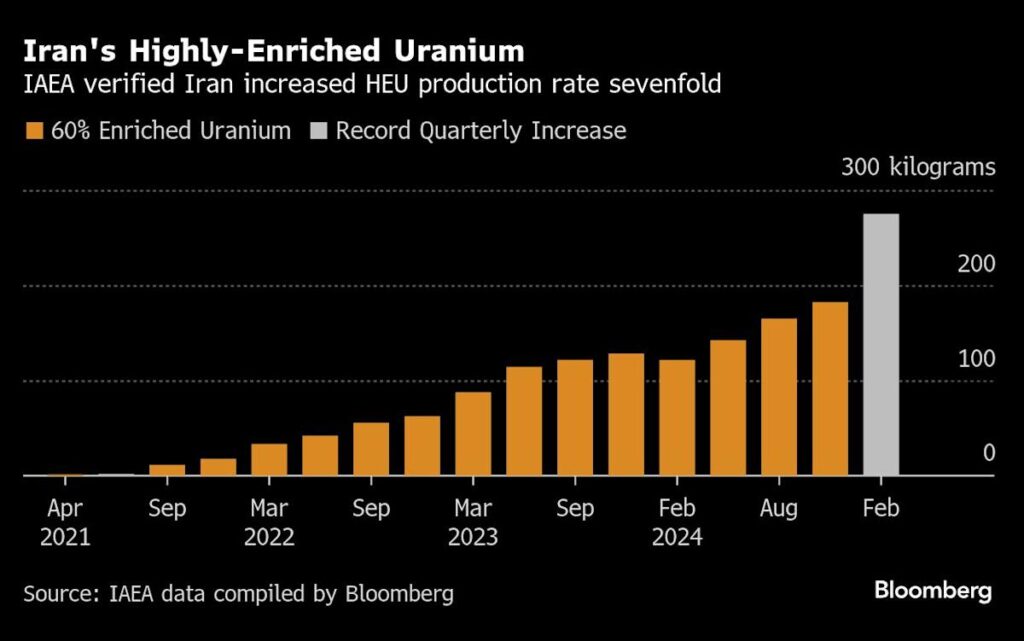(Bloomberg) — Iran’s stockpile of uranium enriched near the level needed for nuclear weapons surged more than 50% in the last three months, defying mounting pressure on the Islamic Republic to curb its atomic activities.
Most Read from Bloomberg
In its first report on Iran since US President Donald Trump returned to the White House last month, the International Atomic Energy Agency said Tehran had increased the monthly accumulation rate for highly-enriched uranium sevenfold since December. The country is now producing the equivalent of one bomb’s worth of material a month, according to IAEA figures.
That material could quickly be upgraded to levels typically used in nuclear weapons — a concern long held by the US, Europe and Israel. Iran has always denied its nuclear development is for military use, saying the focus is on energy and civilian technology.
“The significantly increased production and accumulation of high enriched uranium by Iran, the only non-nuclear weapon state to produce such material, is of serious concern,” IAEA Director General Rafael Mariano Grossi wrote in the 14-page report seen by Bloomberg. Iran ramped up production of uranium enriched to 60% levels of purity in response to being censured by the IAEA in November.
After pulling out of an international deal that limited Iran’s nuclear activity in exchange for sanctions relief during his first term, Trump this month revived a so-called maximum pressure campaign to weaken the Persian Gulf nation’s economy. The US intends to squeeze Iran’s oil exports to just 1/10th of current levels, Treasury Secretary Scott Bessent said Feb. 14.
Trump has said he would “prefer” a new nuclear accord, though Iran’s Supreme Leader Ayatollah Ali Khamenei has ruled out talks with the US while it intensifies its maximum pressure strategy on the Islamic Republic.
The IAEA report comes as tension builds between Israel and Iran-backed militant group Hamas, designated a terrorist organization in the US and many other countries. A fragile ceasefire between the two sides in Gaza is due to expire next week, with little concrete progress yet made toward an extension.
A return to fighting would increase the focus on Tehran, which also sponsors other Middle East militia such as Hezbollah in Lebanon. Israel and Iran twice exchanged direct missile fire last year, though the skirmishes stopped short of a full-blown war.
Story Continues


